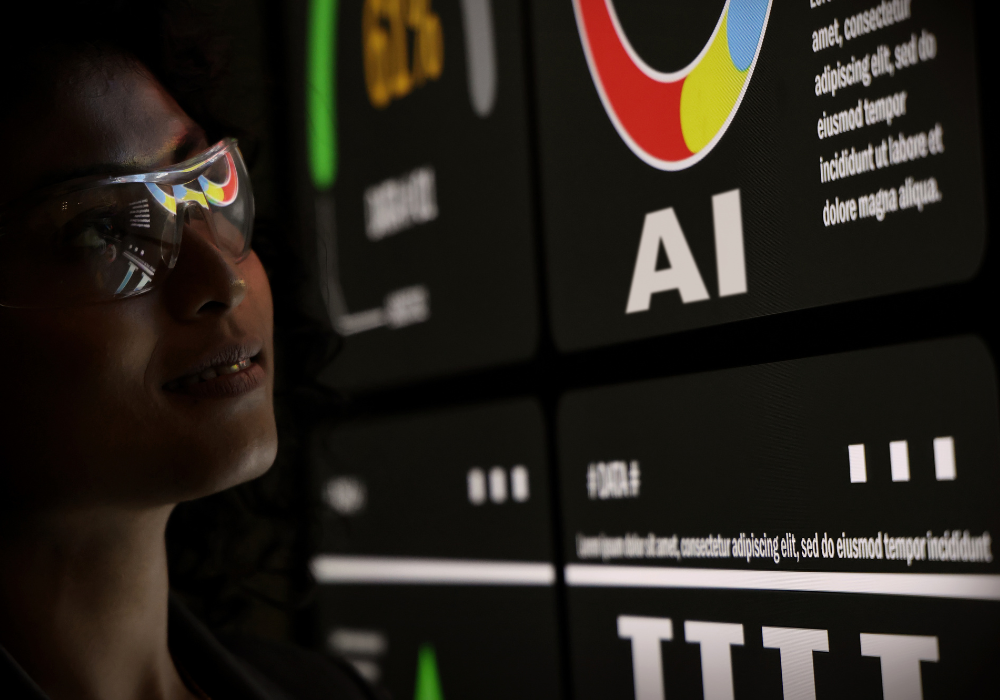Exploring the workforce of the future: vectors of change
There are certain cognitive capabilities that we, as humans, are naturally blessed with and machines are still decades away from being able to negotiate that uncanny valley. The nuances of real human conversation, for example, are still lost on even the most advanced algorithms. Machines, meanwhile, can offer intelligent automation and complete certain tasks in a split second that it might take minutes or even hours for a human counterpart to accomplish.
The future of the enterprise workforce isn’t robots replacing humans but robots working alongside humans and integrating naturally. This much is clear, but whilst teams might be virtualising, there are other factors at play shaping the workforce of tomorrow - work is fragmenting, talent is now viewed globally rather than locally (meaning more competition) and there is the potential for a crisis of meaning as roles are restructured and redefined.
5 vectors of change
Charles Darwin said it best: “The species that survive and thrive are not the strongest or most intelligent, but those that are most adaptable to change.” These wise words will form the backbone of the workforce of the future as change is not only likely but necessary in order to build an enterprise that can weather whatever might be thrown at it.
Of course, the workforce of the future will be impacted significantly by digital workers, but there is a multitude of other factors that will shape it into what it needs to be. We refer to these as the “vectors of change” and can be broken down into five categories:
1. Data
Have you ever heard the phrase “data is the new oil?” It might sound like a rather bold statement, but data is by far the most powerful and valuable currency in today’s enterprise economy. Indeed, 97% of businesses now use data to power their business opportunities because it is not just a currency but a useable resource. Every piece of consumer data, whether it be what websites they’ve visited, where they live or where they ‘check-in’ on social media, is another insight into your existing and potential customers.
The beating heart of the future workforce will be formed around the ‘big data’ that can be drawn from various disparate sources and combined to facilitate a better experience for their customers. We might live in an age of data consent and privacy worries, but even post-GDPR, most people are pragmatic about sharing their data, because they know it will result in more personal and optimised experiences. It’s all about finding that perfect middle ground between how much they are willing to give away and how much they covet that extra convenience.
2. Consumer power
The consumer has more power now than ever before thanks to the wealth of information at their fingertips and the connectivity catalysed by social media. These consumers yearn for richer and more heavily integrated experiences that make their lives easier and more fulfilling. These are also consumers that trust other consumers more than they trust brands, with 81% of consumers trusting customer reviews and ratings over ‘official’ advertising.
This is reinforced by the popularity of services like Uber and Airbnb - businesses where the brand sits in the background and it’s the individual front and centre. Customer experience is the key differentiator for enterprises today, with the most trusted brands those that can be seen as consistent and innovative. Amazon, Apple and John Lewis didn’t get to where they are by ignoring their customers, but by adapting to cater more to them and provide value to the consumer.
3. Fragmentation
With enterprises struggling to keep up with the sheer pace of change, more and more are reaching out to the gig economy to create an extended enterprise with more to offer. The gig economy (which refers to freelancers working on demand) is currently worth around $50 billion globally and accounts for around 4.7 million workers in Britain alone. Remote work was once seen as a fantasy, but thanks to faster and more reliable internet and improved infrastructure, it’s now a proven business model.
Virtual teams are now being formed globally, with video conferencing and cloud-enhanced collaboration tools and content management systems allowing the workforce to not only grow virtually but in real terms too. Remote workers are more flexible, of course, but a fragmented workforce comes with challenges that will require new models of management and communication. When it comes to the fragmented workforce of the future, traditional office-based models will definitely need to be reevaluated, but the benefits far outweigh the drawbacks.
4. Globalisation
We currently sit at 76% full employment in the UK and the same is true of most western economies. The global population is also ageing rapidly, with the same proportion of 30 to 45-year-olds in work currently as 45 to 60-year-olds. This leaves a shortage of talent in its wake. This means the power is increasingly held not by the enterprises, but by that talent, with a new generation of workers looking for greater ‘purpose’ in their employers.
Talent Acquisition Managers are continuing to report challenges and shortfalls, particularly in the data science and robotics sectors. This has led to many businesses starting to look outward towards global talent in developing countries, where they can have their pick of the talent and not have to pay through the nose for it. Indeed, global mobility assignments have increased by 25% in the last year and the prediction is that the number of mobile employees will increase by 50% in 2020.
5. Social crisis
The final vector of change is perhaps the most difficult to control. For decades, people have been defined by their work, so with more jobs being automated and outsourced, that means a potential loss of purpose and identity for many.
In a world where people are increasingly looking for a purpose in what they do, the concept of our jobs disappearing (and our identities along with them) is sobering indeed. It’s up to enterprises then, to ensure that where automation is implemented for the good of the company, it is done so without sacrificing the worth and the value of the individual. Because what is an enterprise without its employees?
If you are about to embark on automation or are scaling up your digital workforce, we’d love to talk to you. Whatever stage in your journey, we can help.
Discover more about how we can help your business implement a digital workforce >>
Our latest insights







